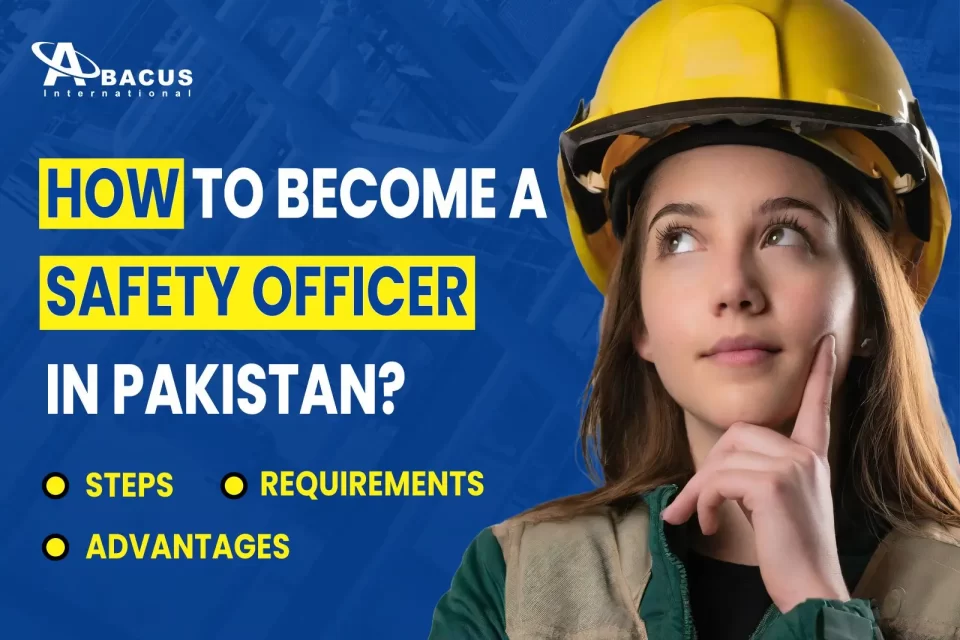Nowadays every industry is focusing on occupational health and safety for the well-being of their employees. With the increasing emphasis on workplace safety, organizations globally are looking for safety officers, individuals dedicated to upholding workplace safety standards. Safety officers play a crucial role in ensuring the well-being of individuals within various industries. From construction sites to manufacturing plants.
In this article, we will discuss about educational, skill-based requirements and the industry-specific requirements needed to start a successful career as an occupational health and safety officer.
Who is a Safety Officer?
A workplace safety officer is a professional responsible for making sure that people are safe in the workplace. Their main job is to create and enforce rules to prevent accidents and keep everyone safe. They assess risks, come up with safety plans, and teach people how to stay safe.
Overall, Safety Officers aim to build a culture of safety, reduce dangers, and make sure that everyone stays well in a particular place.
What Are the Responsibilities of a Safety Officer?
- Conduct regular risk assessments
- Ensure regulatory compliance
- Develop and enforce safety policies and procedures
- Provide safety training and education for employees
- Investigate accidents and incidents, implement corrective actions
- Develop and implement emergency response plans
- Conduct safety inspections and audits
- Manage hazardous materials in accordance with regulations
- Promote safety awareness through communication channels
- Participate in safety committees
- Maintain accurate safety records
- Foster a positive safety culture
- Ensure proper use of personal protective equipment (PPE)
- Continuous improvement of safety programs and procedures
Steps to Become a Safety Officer
Step 1: Get a certification in health and safety
Step 2: Get hands-on experience with internships and volunteer opportunities
Step 3: Choose an industry to work
Step 4: Apply for Safety Officer Jobs Available
Step 5: Prepare Yourself for the interview
Step 6: Keep Adding New High Demanding Certification to Enhance Your Qualification
Requirements to be a Safety Officer
Becoming a workplace health and safety officer involves a combination of education, experience, skills development, legal knowledge, and industry-specific expertise. Meeting these requirements equips individuals to proactively enhance safety standards and create a secure working environment for all.
Educational requirements to become a safety officer
To start your journey as a safety officer, you will require a foundational educational background. For that, you need to get a globally renowned certification. The highly demanding qualification to become a safety officer is NEBOSH IGC, which is offered by NEBOSH (National Examination Board of Occupational Safety and Health). It is considered as a starting point to become an occupational health and safety officer.
Additionally, people can make themselves more eligible by getting more qualifications related to the safety field. For instance, NEBOSH Process Safety Management (PSM), Certified Safety Professional (CSP), IOSH Managing Safely and OSHA 30 Hours. These special training programs, designed for certain industries, also help you to build a strong educational base. It gives professionals the necessary knowledge and skills to keep workplaces safe.
Professional Experience
Experience in the field is often a critical factor in becoming a Safety Officer. Employers typically seek candidates with practical experience in occupational health and safety. Entry-level positions or internships in safety-related roles can provide valuable hands-on experience and contribute to the development of essential skills.
Aspiring workplace safety officers may progress through the ranks, gaining experience in areas such as risk assessment, incident investigation, emergency response planning, and safety program management. Demonstrating a track record of successful safety initiatives and compliance with regulations is beneficial.
Essential Skills
The role of an occupational health and safety officer demands a set of essential skills. Clear and effective communication is paramount for conveying safety information, while analytical skills enable professionals to assess complex situations. Equally vital are problem-solving skills, empowering officers to devise practical solutions to enhance workplace safety.
Legal Knowledge
A comprehensive understanding of relevant safety regulations and legal requirements is paramount for a Safety Officer. This includes knowledge of federal, state, and local regulations pertaining to occupational health and safety. Keeping abreast of changes in legislation and ensuring organizational compliance is an integral aspect of the role.
Industry-Specific Requirements
Different industries may have unique safety challenges and regulations. A Safety Officer must be well-versed in the specific safety requirements of the industry in which they work. For example, construction, manufacturing, healthcare, and oil and gas industries each have distinct safety considerations, and a Safety Officer should be knowledgeable about the specific risks associated with their sector.
Also Read: Safety Officer Salaries in Gulf Countries
Advantages of Becoming a Safety Officer
Here are the key advantages of becoming a workplace health and safety officer:
Promoting Safety Culture
- Fosters awareness and adherence to safety protocols.
- Contributes to creating a safer work environment.
Preventing Accidents and Injuries
- Identifies and addresses potential hazards.
- Reduces the financial and emotional impact of workplace incidents.
Regulatory Compliance
- Ensures adherence to local, national, and international safety regulations.
- Enhances organizational reputation and legal standing.
Risk Management
- Identifies and manages risks in the workplace.
- Minimizes the likelihood of accidents and associated liabilities.
Emergency Preparedness
- Develops and implements emergency response plans.
- Mitigates the impact of emergencies on lives and property.
Health Promotion
- Contributes to overall employee health and well-being.
- Implements wellness programs and ergonomic assessments.
Professional Development
- Offers continuous learning opportunities.
- Keeps abreast of the latest safety standards and technologies.
Job Satisfaction
- Provides intrinsic satisfaction in contributing to the safety of others.
- Celebrates tangible improvements in safety performance.
Career Opportunities
- Opens doors to various career paths in different industries.
- Meets the growing demand for qualified safety professionals.
Positive Impact on Company Reputation
- Enhances the organization’s image through a strong safety record.
- Builds trust among customers, clients, and employees.

